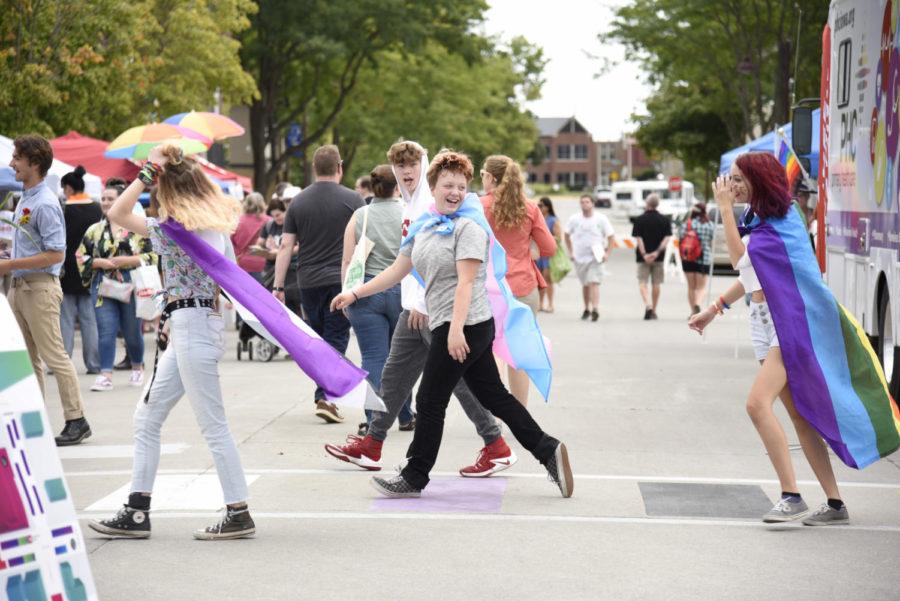- News
- News / Politics And Administration
- News / Politics And Administration / Campus
- News / Politics And Administration / City
- News / Politics And Administration / State
Politicians join Americans with increased support for LGBTQIA+ rights
September 8, 2019
The American public as a whole has shifted steadily to being more supportive of LGBTQIA+ rights over the past twenty years.
A 2019 Gallup survey found 63 percent of Americans support same sex marriage rights, up nearly 30 percent from their 1999 survey. As Americans have become more supportive of non-cisgender and non-heterosexual people, politicians have followed their trend. Among Democrats, the percentage of those who support same sex marriage jumps to 79 percent.
At the Ames Pridefest held Saturday, at least six democratic presidential campaigns had active presences, with Sen. Bernie Sanders, I-Vt., and Sen. Elizabeth Warren, D-Mass., having their own tents set up, decorated with pride-colored campaign swag. The presence of these campaigns at the event are emblematic of the sea-change that has occurred in politics in terms of support for LGBTQIA+ rights, especially among Democrats.
J.D. Scholten — the 2018 democratic nominee who nearly defeated Rep. Steve King, R-Storm Lake, in last year’s midterm elections and who is seeking the 2020 Democratic nomination for a rematch against King — said at Ames Pridefest people can see how views on LGBTQIA+ rights have changed “dramatically.”
“I’m old enough that I remember when the kiss on the Ellen show was a big deal, and now it’s not. For my generation that was the first big mainstream change I think […] there was a sitcom and two women kissed on there, and it was a big deal for us growing up,” Scholten said. “At the same time, I mean — it’s civil rights — it’s human rights, and I think people can jump on board with that and that’s why you’re seeing so many people stand up and be allies.”
The candidate said if elected, he would push for the passage of the Equality Act, adding people should be allowed “to be themselves.”
Pride events have always been political — with the first Pride events being held to simply fight for the human rights of LGBTQIA+ people. In her first year in Congress in 1987, now Speaker of the U.S. House of Representatives Nancy Pelosi marched for gay rights alongside hundreds of thousands of others in Washington.
The campaign of Sen. Kamala Harris noted her long-standing support for LGBTQIA+ rights, saying in a statement she was performing same-sex marriages in San Francisco “at a time when many Democrats still supported civil unions” and created a hate crime unit dedicated to LGBTQIA+ hate crimes as district attorney in 2004.
Sherrie Taha, who has run for various elected offices in Iowa as a democrat and now serves as the Story County Democrats LGBTQIA+ advocacy committee chair, said in her experience the shift among Democrats has been “pretty much supportive” toward same-sex marriage. Taha said she could not recall the first time she saw LGBTQIA+ support in the party platform.
When asked whether she thought the party should be doing more to support equal rights, Taha said she believes “pretty much all the federal elected [officials]” in the Democratic Party from Iowa are “happy” to vote for the Equality Act. She said having anti-bullying legislation would be beneficial to not just LGBTQIA+ people, but everyone — in the same way the Americans with Disabilities Act of 1990 benefited the public as a whole.

















